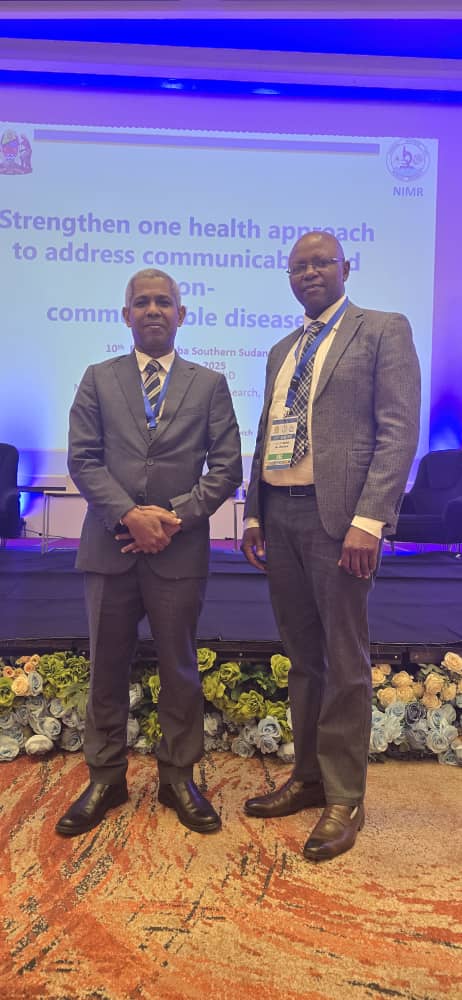The National Institute for Medical Research (NIMR) has called for a bold expansion of the One Health approach to address both communicable and non communicable diseases (NCDs) in Africa during the 10th East African Health and Scientific Conference (EAHSC), where the Tanzanian delegation was led by NIMR Director General Prof. Said Aboud and included a keynote address by Dr. Calvin Sindato, Principal Public Health Researcher and Head of NIMR Tabora Research Station. Prof. Said Aboud also sits as a Commissioner of East Africa Health Research Commission.
The Conference Held in Juba from June 25–27, the regional gathering attracted research scientists, policymakers, and practitioners from all eight East African Community (EAC) member states, as well as international partners. The conference theme was “Addressing Health Priorities and Advancing the East African Region Health Agenda to Meet Global Health Targets.”
In his keynote, Dr. Sindato stressed that the traditional focus of the One Health approach on zoonotic diseases is no longer sufficient. He advocated for a comprehensive strategy that integrates the growing burden of NCDs, driven by climate change and lifestyle factors, into national and regional public health responses.
“Communicable diseases and NCDs are increasingly interconnected,” said Dr. Sindato. “The government and society approach is essential for effective prevention and control.”
He called for stronger multi-sectoral collaboration spanning from animal health, environment, education, agriculture, finance, urban planning, civil society, and the private sectorbuild resilient health systems capable of responding to complex health challenges.
Dr. Sindato also highlighted the potential of digital tools and community-led innovations, including mobile platforms, digital surveillance systems, and participatory disease monitoring, as critical to early detection and rapid response. He proposed a joint regional mission to prioritize both epidemic-prone infectious diseases and high-impact NCDs.
Among the key challenges he outlined were: limited public awareness of the One Health concept, inadequate funding, fragmented data systems, weak multisectoral coordination, and the neglect of NCDs in many One Health strategies. He offered practical solutions tailored to the region’s capacities and stressed the importance of leveraging East Africa’s growing political will, digital infrastructure, and institutional frameworks.
NIMR’s participation reaffirmed Tanzania’s strong commitment to regional collaboration and scientific leadership. Under Prof. Aboud leadership, NIMR continues to spearhead research that informs health policy, strengthens disease prevention, and enhances public health systems in Tanzania and across the East Africa region.


